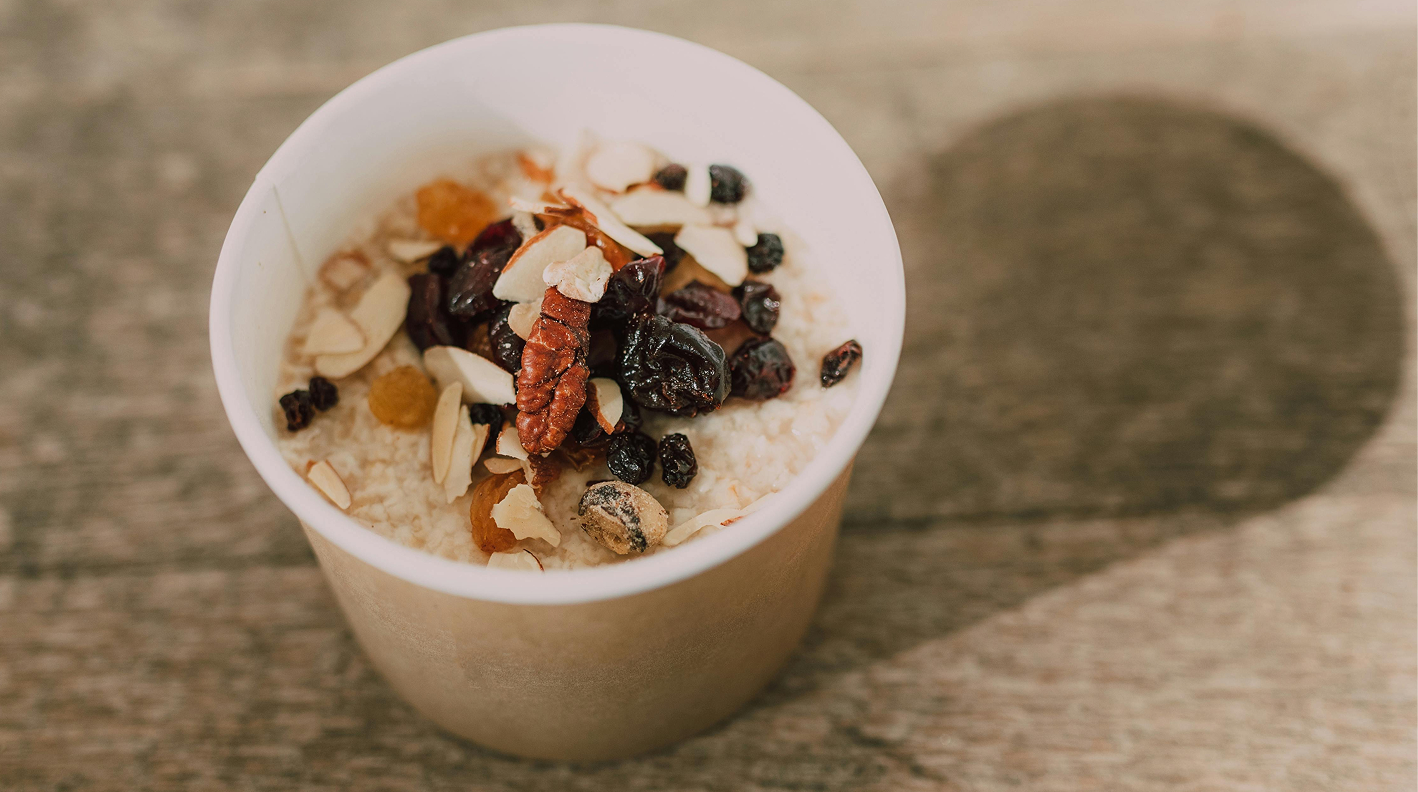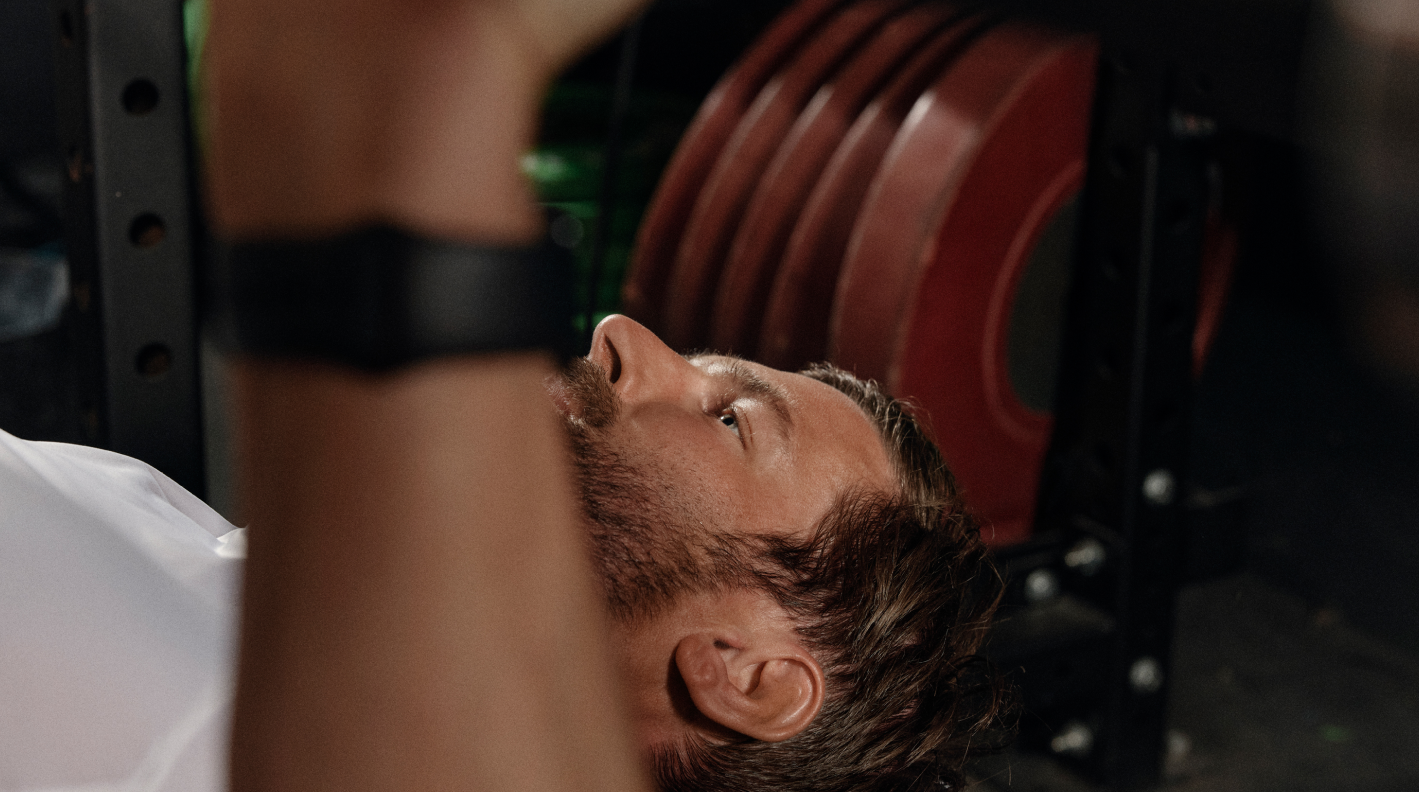Sleep soundly: Understanding the benefits of mouth taping

Key takeaways
Breathing comes naturally to 99.9% of folks. It happens without thought (unless we’re being mindful or our heart rate is escalating) so you might assume there isn’t a wrong way to do it. Let’s dive into why that might not be the case.
Breathing is controlled by the autonomic nervous system, also called the involuntary nervous system. Our brainstem's respiratory centre automatically regulates breathing by signalling muscles when to inhale and exhale, ensuring this vital process happens without us having to think about it.
According to some physios and breath experts, up to 80% of the population isn’t breathing correctly [1].
So what are we doing wrong?
Problems can range from breathing through the mouth, breathing through the upper chest and neck muscles, having altered breathing rhythm and rate, or keeping the body in a stress state for long periods.
What’s the problem with mouth breathing?
Breathing through the nose, rather than the mouth, is crucial for filtering air, increasing humidity for optimal lung health, and affecting various bodily functions, from hormone regulation to improving fitness performance [2].
We’re born knowing the correct way to breathe but many shift to less efficient breathing habits over time, influenced by self-consciousness (like how your stomach looks going in and out) or stress. Often resulting in shallow chest breaths or holding of the breath, especially under pressure.
James Nestor, author of the popular book Breath, allowed scientists at Stanford University to seal his nose with silicone and surgical tape for 10 days. This enabled them to study the effects of mouth-only breathing, revealing very quick results.
Nestor experienced significant health declines during the experiment, including a rise in blood pressure to stage one hypertension, increased heart rate variability indicating stress, mental fog, hours of snoring each night, and the development of obstructive sleep apnoea with reduced blood oxygen levels.
Mouth breathing at night is linked to higher risks of sleep disorders like snoring, sleep apnoea, and hypopnea, leading to obstructed airflow and ultimately daytime fatigue.
Mouth breathing at night
Signs of nighttime mouth breathing include waking up with a dry mouth, feeling unusually tired, or needing to urinate frequently, which may indicate disturbed sleep or sleep apnoea.
Mouth breathing can worsen at night, potentially leading to or exacerbating sleep apnoea as it causes the tongue to block the airway. This becomes a habit that’s hard to break (as we're KO'd during).
Enter: mouth-taping
There has been a recent uptick in the number of people mouth-taping while sleeping due to experiments like Nestor’s. This involves taping the mouth shut at night to promote nose breathing due to the tendency for many to naturally sleep with their mouth open.
This experiment from YouTuber Ali Abdaal involved taping his mouth shut while sleeping for 30 days, discovering some significant changes [3].
Techniques to try
Try to integrate some of these techniques into your nighttime routine to reduce mouth breathing.
- Begin with nasal care (using nasal saline irrigation as a gentle decongestant) to reduce congestion
- Avoid eating before bedtime (something we advocate from a digestion POV) to prevent congestion from stomach juices
- Explore solutions like nasal strips and dilators to physically open nasal passages, addressing widespread breathing issues without the side effects associated with the long-term use of decongestant sprays
- Lastly, we recommend seeing an ENT (ear, nose and throat doctor) or a sleep specialist to get a treatment plan for lasting issues like sleep apnoea
We’d love to work with you to put this into practice. Compound is a digital clinic for performance health, for men. Once the exclusive domain of billionaires and Hollywood stars, we're on a mission to make premium concierge care accessible to every man who wants more.
Compound's Body Transformation Programme combines medical treatments, prescriber support and personalised guidance to help you not just lose weight but completely transform your body and health for life.
- Breakthrough medication: Lose up to 21% of your body weight in 72 weeks with once-weekly, clinically proven treatment. It keeps you feeling fuller for longer, so eating less feels natural. Pair them with the Compound Code to lock results in for good.
- Compound Code: Our medication creates opportunity — Compound helps you seize it. Our proven system makes your treatment work harder. The Compound Code builds the muscle, energy, and fitness that medication alone can't deliver. Our holistic approach transforms not just how you look, but how you feel and function daily. So when you eventually finish treatment, your results don't disappear with it.
We are integrating diagnostics (bloodwork, scans, etc), treatment (medication, supplementation), performance programming, and support (coaching, accountability, care) — wrapped around a growth mindset.
This post contains general information about health and wellness practices. It is not intended as medical advice and should not be treated as such. Please consult with a healthcare professional before starting any new health regimen. This information is provided without any representations or warranties, express or implied.
Breathing comes naturally to 99.9% of folks. It happens without thought (unless we’re being mindful or our heart rate is escalating) so you might assume there isn’t a wrong way to do it. Let’s dive into why that might not be the case.
Breathing is controlled by the autonomic nervous system, also called the involuntary nervous system. Our brainstem's respiratory centre automatically regulates breathing by signalling muscles when to inhale and exhale, ensuring this vital process happens without us having to think about it.
According to some physios and breath experts, up to 80% of the population isn’t breathing correctly [1].
So what are we doing wrong?
Problems can range from breathing through the mouth, breathing through the upper chest and neck muscles, having altered breathing rhythm and rate, or keeping the body in a stress state for long periods.
What’s the problem with mouth breathing?
Breathing through the nose, rather than the mouth, is crucial for filtering air, increasing humidity for optimal lung health, and affecting various bodily functions, from hormone regulation to improving fitness performance [2].
We’re born knowing the correct way to breathe but many shift to less efficient breathing habits over time, influenced by self-consciousness (like how your stomach looks going in and out) or stress. Often resulting in shallow chest breaths or holding of the breath, especially under pressure.
James Nestor, author of the popular book Breath, allowed scientists at Stanford University to seal his nose with silicone and surgical tape for 10 days. This enabled them to study the effects of mouth-only breathing, revealing very quick results.
Nestor experienced significant health declines during the experiment, including a rise in blood pressure to stage one hypertension, increased heart rate variability indicating stress, mental fog, hours of snoring each night, and the development of obstructive sleep apnoea with reduced blood oxygen levels.
Mouth breathing at night is linked to higher risks of sleep disorders like snoring, sleep apnoea, and hypopnea, leading to obstructed airflow and ultimately daytime fatigue.
Mouth breathing at night
Signs of nighttime mouth breathing include waking up with a dry mouth, feeling unusually tired, or needing to urinate frequently, which may indicate disturbed sleep or sleep apnoea.
Mouth breathing can worsen at night, potentially leading to or exacerbating sleep apnoea as it causes the tongue to block the airway. This becomes a habit that’s hard to break (as we're KO'd during).
Enter: mouth-taping
There has been a recent uptick in the number of people mouth-taping while sleeping due to experiments like Nestor’s. This involves taping the mouth shut at night to promote nose breathing due to the tendency for many to naturally sleep with their mouth open.
This experiment from YouTuber Ali Abdaal involved taping his mouth shut while sleeping for 30 days, discovering some significant changes [3].
Techniques to try
Try to integrate some of these techniques into your nighttime routine to reduce mouth breathing.
- Begin with nasal care (using nasal saline irrigation as a gentle decongestant) to reduce congestion
- Avoid eating before bedtime (something we advocate from a digestion POV) to prevent congestion from stomach juices
- Explore solutions like nasal strips and dilators to physically open nasal passages, addressing widespread breathing issues without the side effects associated with the long-term use of decongestant sprays
- Lastly, we recommend seeing an ENT (ear, nose and throat doctor) or a sleep specialist to get a treatment plan for lasting issues like sleep apnoea
We’d love to work with you to put this into practice. Compound is a digital clinic for performance health, for men. Once the exclusive domain of billionaires and Hollywood stars, we're on a mission to make premium concierge care accessible to every man who wants more.
Compound's Body Transformation Programme combines medical treatments, prescriber support and personalised guidance to help you not just lose weight but completely transform your body and health for life.
- Breakthrough medication: Lose up to 21% of your body weight in 72 weeks with once-weekly, clinically proven treatment. It keeps you feeling fuller for longer, so eating less feels natural. Pair them with the Compound Code to lock results in for good.
- Compound Code: Our medication creates opportunity — Compound helps you seize it. Our proven system makes your treatment work harder. The Compound Code builds the muscle, energy, and fitness that medication alone can't deliver. Our holistic approach transforms not just how you look, but how you feel and function daily. So when you eventually finish treatment, your results don't disappear with it.
We are integrating diagnostics (bloodwork, scans, etc), treatment (medication, supplementation), performance programming, and support (coaching, accountability, care) — wrapped around a growth mindset.
This post contains general information about health and wellness practices. It is not intended as medical advice and should not be treated as such. Please consult with a healthcare professional before starting any new health regimen. This information is provided without any representations or warranties, express or implied.












